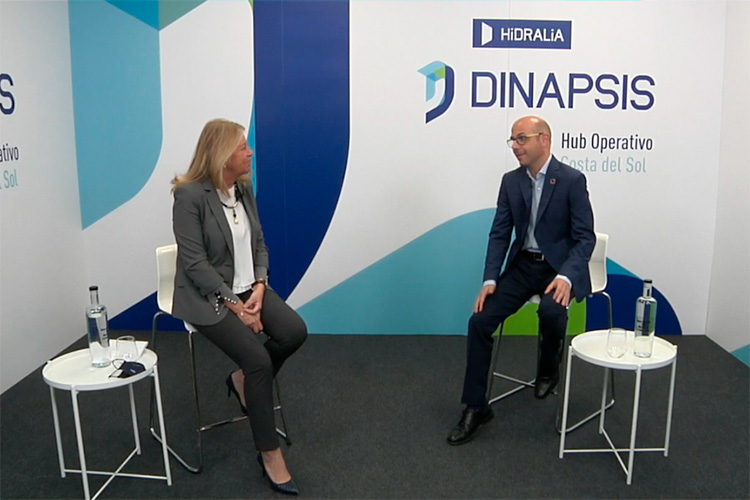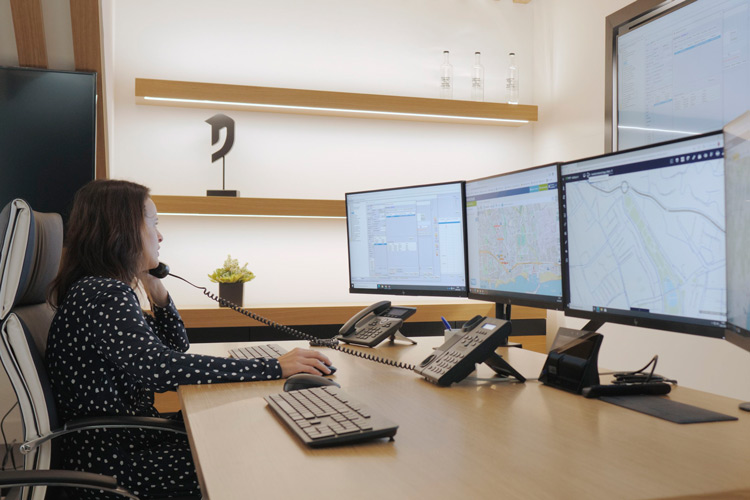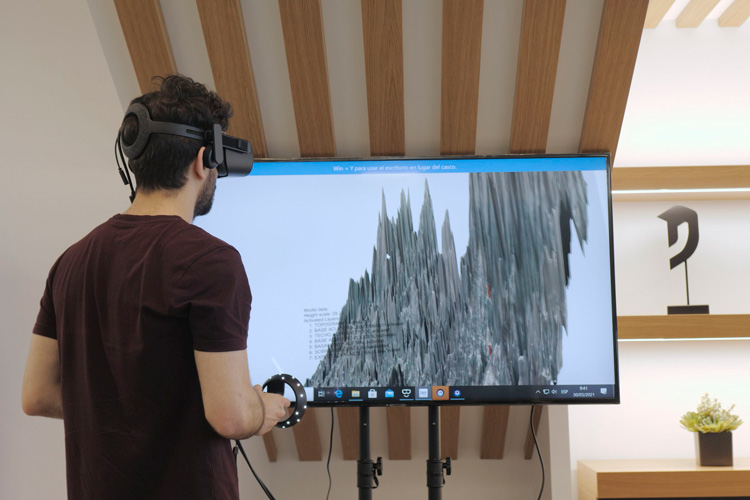DINAPSIS Costa del Sol: The digital transformation of the integral water cycle
Hidralia presents the Dinapsis Operational Hub, an innovative space where the management of all phases of the Integral Water Cycle is concentrated in a single intelligent digital platform
Hidralia, an environmental company dedicated to the management of the integral water cycle, has presented the Dinapsis Costa del Sol Operational Hub, a space located in Marbella, which is committed to digitization as a transforming axis for cities, by concentrating the management of all phases of the water cycle in a single smart platform.

The event, broadcast on Hidralia's YouTube channel, was attended by company directors and exceptional guests, such as the mayor of Marbella, Ángeles Muñoz, the CEO of Acosol, Carlos Cañavate, and the professor and director of the Hydrogeology Center of the University of Malaga (CEHIUMA), Bartolomé Andreo Navarro.
Fulgencio Díaz, manager of Hidralia on the Western Costa del Sol, has referred to the Dinapsis Operational Hub as “the future of water management on the Costa del Sol”. The director of Hidralia has highlighted the need to face the historical challenge presented by climate change and how cities must adapt to it and increase their resilience through digitization. "This Operational Hub allows us to anticipate the adverse phenomena of climate change and become one of the main actors to face the environmental and sustainability challenges that we face".
For her part, the mayor of Marbella, Ángeles Muñoz, thanked Hidralia for having decided to commit to this platform of smart services to turn the city into a benchmark in terms of innovation and sustainability: "The best proof that Marbella is The vanguard of digital innovation is the commitment to be a benchmark in water management, where sustainability and innovation go hand in hand”, she pointed out. In addition, the mayor has highlighted the importance of taking care of the resource from its collection to its smallest detail to make it reach the end user with high performance, as is done in the city. "Thanks to this commitment, investment and results, Marbella manages to be synonymous with technology, innovation and also sustainability," she concluded.
Carlos Cañavate has highlighted the great technological leap that an operations center of these characteristics represents and that results in the need for investments to modernize infrastructures that, for the most part, are obsolete. For this reason, it has focused on the European Next Generation funds as the great opportunity to do so. “We understand that the way to meet these public investment needs is the Next Generation funds; We believe that this type of modernization and digitization comes within the European framework, and therefore we will work to create alliances with entities such as Hidralia and other partners to achieve them”, he pointed out.
Lastly, Bartolomé Andreo highlighted the efficient management carried out by Hidralia of the coastal aquifers, through a pioneering technique such as their artificial recharge. "This is a totally sustainable experience, which is worth promoting, since it allows avoiding marine intrusion so that the aquifer does not become salinized and guarantees a certain availability of water in periods of scarcity", he said.

What is the Dinapsis Costa del Sol Operational Hub?
The Dinapsis Operational Hub is a digital control center that allows unifying all the management of the integral water cycle in a single platform. All the processes that take place in the urban water cycle, from collection to sanitation, are monitored in real time in this space and at a glance thanks to the network of sensors distributed throughout the networks and equipment.
Dinapsis also offers services to optimize management, improve maintenance and upkeep of infrastructures, as well as reduce leaks or control water quality. All this, through centralized planning that enables rapid decision-making in the face of unforeseen events and that presents digital solutions to advance the sustainable development of localities and improve their resilience, by reacting to climate crises immediately and in a coordinated manner to reduce the impact on the city.
This centralized and intelligent planning of operations manages to reach levels of technical performance that, for example, exceed 90% in 7 of the 85 microsectors into which the Marbella network is divided.
On the other hand, thanks to remote reading, users will be able to have access to the record and access to their consumption information 24 hours a day, 365 days. This allows, among other things, that citizens can have an alarm system for leaks, since they will be able to know instantly if they are losing water (very high consumption) and, thus, not have shocks in the bills. Likewise, users who have a second home will be able to control when water is used, being able to detect the illegal occupation of the same or, for example, manage the lack of consumption from a moment and during a certain period of time, which that can alert relatives of any problem or mishap for people who live alone. In short, technology at the direct service of people.
Finally, all this innovation is linked to cybersecurity, creating a safe environment to prevent any external attack, virus or malware from affecting the proper functioning of the service.

SERVICES IMPLEMENTED IN DINAPSIS COSTA DEL SOL
- Supervision and monitoring of drinking water and sanitation networks
- The implemented solution supervises the drinking water networks in real time and analyzes events related to the amount of water supplied, the flows and pressures in the network and the information from the remote reading of home consumption. In this digital system, sensors are used in the field distributed throughout the network that control not only the quantity of water supplied, but also the quality of the water consumed through the parameters associated with it.
- We monitor the sanitation network through the data collected by the field sensors distributed throughout the network. In addition, this service allows obtaining meteorological information through rain gauges and radars, making it very effective for flood prevention and conservation of the natural environment. This allows anticipating crisis situations and activating emergency protocols in the event of possible floods. Likewise, this solution makes it possible to preserve the quality of the natural environment and control the quality of bathing water in real time, from the seas and rivers of the coast.
- Remote reading: Innovative and efficient remote meter reading system that allows the user to check their water consumption at any time. Its state-of-the-art technology allows detailed access to information online.
- Optimization, planning and monitoring of work: Thanks to the services of the Operational Hub from Dinapsis we achieve an optimization of the work and the assignment of tasks to our templates for maintenance tasks and incidents. The implemented service provides continuous geopositioning of the vehicle fleet, being a support point for the optimization of routes and assignment of orders. All of this is complemented by the analysis of the real state of the sewage network in order to plan cleaning operations and the management of all the actions carried out in the sanitation field.
- Sustainable use of aquifers: From Dinapsis we can control the conditions of the water intakes in real time. We collect the key parameters of our facilities to offer an image, in real time, that guarantees their proper functioning, such as the indicators of the quantity and quality of the aquifers, the specific flow of the wells, the state of the equipment pumping and other parameters such as the depth of the water level, the amount of water being pumped or energy consumption. This entails making rational, more sustainable and environmentally friendly use of aquifers.
- Predictive and preventive maintenance: Dinapsis manages to monitor, audit, technically justify and optimize the predictive, preventive and corrective maintenance of all service infrastructures, both for the planning of necessary renovations and to guarantee services with the minimum possible supply interruptions.
